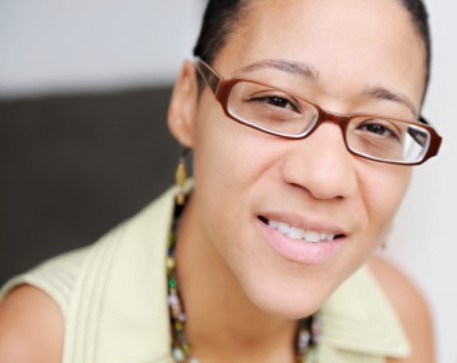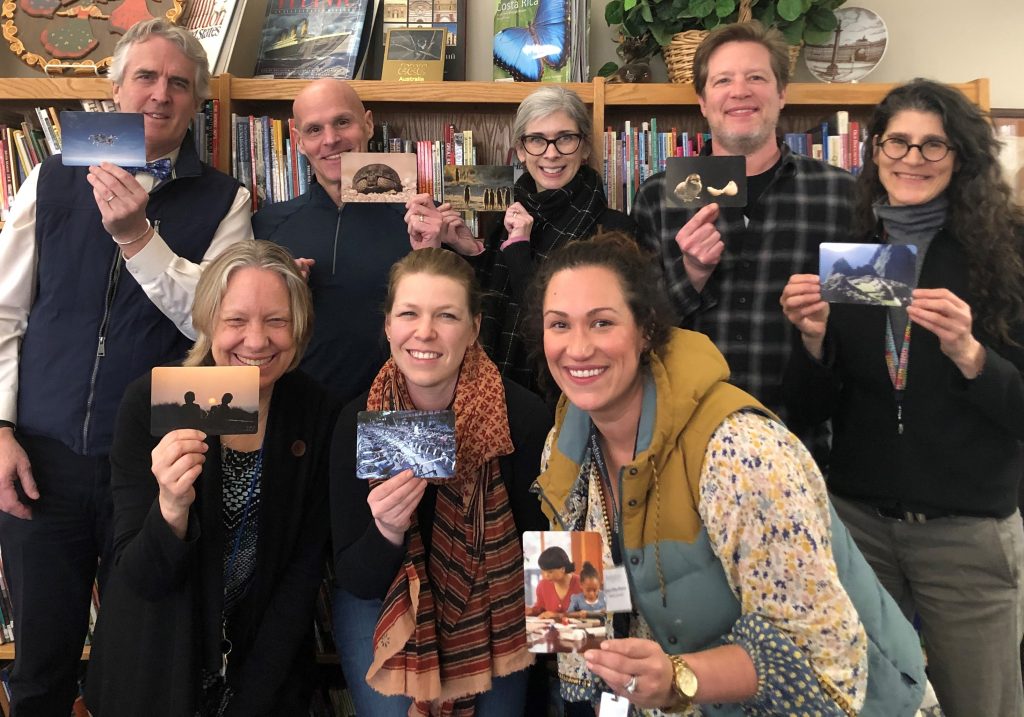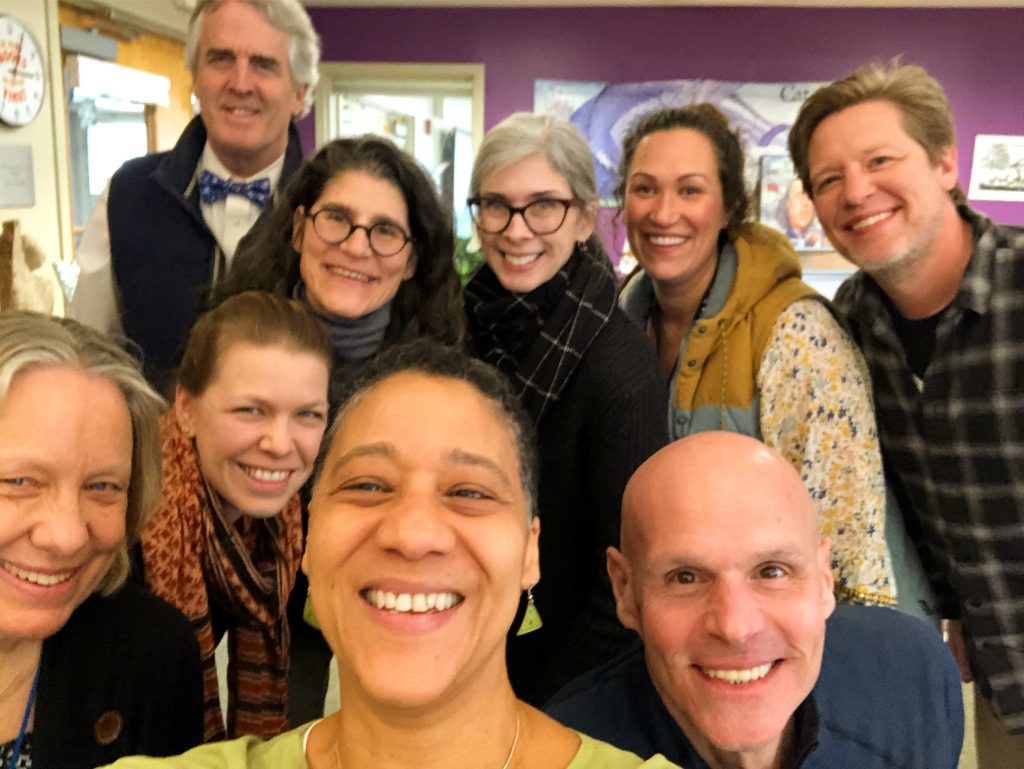
Dr. Sandra Chapman (“Dr. Chap”), facilitated an informative, engaging, and inspiring one-day retreat for our faculty Diversity Committee on February 28. The goal was to support and position the Diversity Committee as they develop their perspectives; build leadership capacity; help lead a range of next steps and initiatives with the faculty, students, curricula, and our community; and put our Diversity, Equity, and Justice Statement into practice.
“Dr. Chap’s mission and work is rooted in her belief that, through teamwork, we can: learn more about the equity, diversity, and community needs of our school environment; discuss and discover the foundational research needed to address community needs; create conversations that support individuals where they are and confront barrier issues to build inclusive communities; and develop actionable steps towards building stronger inclusive communities.”
From “Dr. Chap’s” scope of work for the retreat:

“Building an individual and institution’s racial and equity literacy is a process, not a destination. Workshops and trainings at the institutional level have an impact on the individual, and individual growth is paramount to institutional growth and change (Ramsey & Latting, 2005). In essence, the questions and comments above are a necessary part of the learning process. What often gets missed is that institutional and individual change takes years to develop. Operationalizing knowledge from workshop trainings into equitable practices and mindsets requires focus, self-reflection, and feedback / support from community members. Shifting our biases will not happen overnight, but we can modify our practices over a period of time.

1. Racial Identity Development: Racial identity is a key component of early childhood, adolescent, and adult development. A complete understanding of one’s own and other people’s racial identity has a positive impact on school and classroom environments. What are the challenges to teacher-student, teacher-parent, and colleague-colleague relationships when adults have a limited sense of their own racial identity? Dr. Ali Michael (2015) claims that racial identity is not just another tool, it’s the toolbox.
- Participants will use theoretical models of racial identity development to make meaning of their own life story in the context of their work with others.
- Individual reflection and writing, one-on-one partner share, and small group discussions will take place.
2. Racial Anxiety: Racial anxiety, the brain’s stress response before or during inter-racial interactions, impacts us all on multiple levels and at every aspect of life.
- Participants will engage in dialogue and view a short video to explore this unique phenomenon.
- Research evidence of the impact of this core concept from the mind sciences.
- Strategies for intervening at both the interpersonal and institutional level, in order to recognize and lesson racial anxiety and better align our behavior with our values of equity.
- Practice applying these skills to our everyday interactions with others in and out of school.
3. Implicit Bias: Our unconscious brains process information at rapid speeds. Implicit bias is the brain’s automatic, instant association of stereotypes or attitudes toward particular groups, often without our conscious awareness.
- Explore this core concept from the mind sciences.
- Research evidence of the impact of implicit bias on interactions with colleagues, students, and parents.
- Strategies for intervening.
4. Racial Microaggressions: Dr. Sue defines racial microaggressions as “the brief and commonplace daily verbal, behavioral, and environmental indignities that communicate hostile or derogatory racial slights and insults to people of color.” How can People of Color recover and develop resilience from these remarks? How can white people better understand racial microaggressions and manage racial fragility to develop resilience for addressing the ones they commit.
- Theoretical frameworks and definitions of microaggressions.
- How microaggressions play out with colleagues, students, families, and others in our school community.
- Strategies for addressing microaggressions with colleagues and in the classroom.”
.
